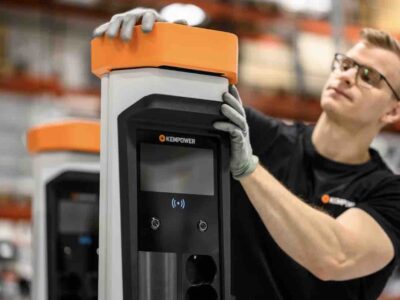Lew Moorman: Innovating Regenerative Ag at Soilworks and Venture Capital at Scaleworks
On a recent episode of Consensus in Conversation, I chatted with West Texan businessman Lew Moorman, an inspiring investor working to upend big ag. The traditional industrial farming machine is doing no favors to the environment, local farmers, and our health. Innovators like Lew know that there must be a better way to farm and ranch – regenerative ranching and agriculture.
Regenerative ag refers to farming and grazing principles designed to mimic the surrounding ecosystem. Strategies vary, but common practices include conserving native vegetation, rotational grazing, fertilizing naturally, and amplifying plant roots’ nutrient-infusion effect on the soil. The agricultural technique’s benefits are numerous, but chief among them might be the creation of soil-based carbon sinks, which can be a valuable tool against climate change.
To support this sustainable farming transition, Lew relied on his prior expertise as a tremendously successful growth private equity investor. He modeled the agriculture fund – Soilworks – after his technology firm – Scaleworks – which helps software startups reach their fullest potential. Lew wanted to unleash the same growth potential in the regenerative ag sector. The technique’s increasing popularity likely stems from its multifaceted potential for a positive impact. As Lew explains, “Regenerative agriculture is one of the few things …that doesn’t seem to have that big of a trade-off. It is better for the animals. It’s better for the environment. It’s better for the consumer. It’s better for the rancher.”
Throughout our conversation, we discussed frameworks for investing and entrepreneurship, the future of agriculture, and how businesses can make the world a better place. Here are a few highlights:
Good Investment Opportunities Come in All Sizes: There seems to be a fixation on finding the next unicorn. It is a trend that I have come to despise as unhealthy and shortsighted. Too many ignore, forget, or mock smaller-scale ideas; but a well-operated smaller business can still lead to valuable returns. Lew’s first project, Scaleworks, operates with this philosophy. They specialize in micro-private equity, purchasing smaller software companies and helping them grow. When these technology companies seemed too established or slowed growth for many investors, Lew, and his team were the right fit. Scaleworks provides growth capital and helps their portfolio companies improve the scope of their business focus and often their profitability. Unicorns and billions of dollars of growth are awesome, but remember that Warren Buffet’s long-term income investing strategy has impressive returns that no one would balk at.
Some of the Best Innovations Come from the Past: As problem solvers, we are obsessed with thinking about the next creative solution to the world’s critical issues – often focusing on technological advances. Yet, sometimes we just need to look back to find the answers. Regenerative ag is one such idea. The roots of this practice stretch back as old as our land was growing food when indigenous communities managed the soil. While industrial farming enabled us to feed more as our country rapidly grew, it also led to soil erosion and pollution. Many blame cattle as the biggest culprit, but Lew Moorman is proving they can play a vital role in carbon sequestration. Ruminants, or large herbivores, have always been an important part of the North American ecosystem. Before the late 1800s, millions of buffaloes roamed America’s Great Plains, controlling wild vegetation and improving soil health. Regenerative ag practitioners raise cattle in a sustainable way that allows them to act as substitutes for these buffalo populations. While this concept has been around for decades, it has yet to scale. Lew saw an opportunity. What regenerative ag needed was an infusion of capital, some business expertise, and more awareness. Let’s see if it catches on.
Mother Nature Decarbonizes Best: Recently, carbon capture is all the rage. There is a great buzz surrounding new machinery for use in carbon sequestration; our episode with Carbon Direct focused some on this. These innovative devices will be huge for decarbonization. However, nature-based techniques have nearly unlimited potential and must also be included in the global efforts to decarbonize. Trees, algae, plants, and soil already capture 30% of all human-emitted CO2 each year. Imagine how much more we could sequester if we focused efforts on leveraging our ecosystems through regenerative ag methods. One study estimates that farm-based carbon capture alone has the astonishing potential to hold almost 52 gigatonnes of carbon dioxide equivalent. That’s enough to match the entire world’s yearly amount of carbon emissions. This will certainly be on the policy agenda going forward, as natural climate solutions happen to be one area of bipartisan agreement.
Business Can and Should Be a Force for Good: Nonprofits and the government are hugely important in the strategy of making a more sustainable future. But, don’t downplay the power of the private sector and capital markets. When investors, companies, and individuals see money-making potential in something, solutions (and capital) abound. One of Lew’s portfolio companies, Grassroots Carbon, is a great example. For many ranchers, change can be difficult because it will require shifting away from profitable, decades-old techniques. As a result, Grassroots utilizes carbon credits to catalyze a transition. They facilitate business partnerships that have rewarded ranchers for practicing regenerative ag. Essentially, private firms, who need to offset their emissions by purchasing carbon storage, will pay landowners to ensure that their pastures are optimized in their role as a carbon sink. Grassroots Carbon helps foster this connection, but the ranchers are able to retain 80% of the profits, which translates to millions of dollars in incentives. While this process works extremely well on an individual basis, new technologies will be needed for the mass adoption of regenerative ag. With Soilworks, Lew recognizes this necessity and invests in innovative companies and solutions because entrepreneurs will be crucial to scaling regenerative ag. Once others see success and profits, they will want in on the action. Before long, investors will gravitate towards the sector, which will become ripe for scale. It is an exciting time to be involved with regenerative ag, and I am eager to watch the accelerating and potentially rapid growth in the sector.





